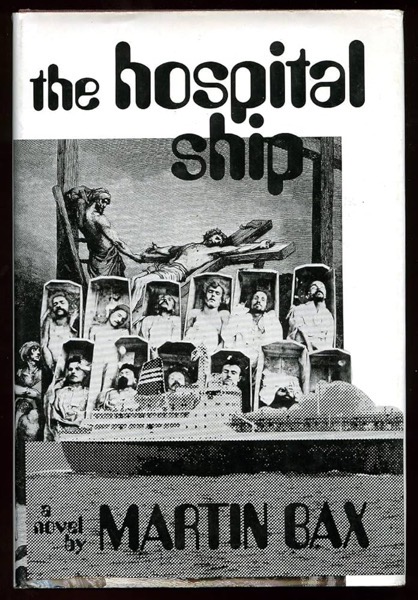poetry
Book review: The Hospital Ship

Bax evades a typically satisfying narrative arc for recondite reprints of medical texts and war-time dispatches/memoir peppered among a minor smatter of pro forma obligations to a novel about people surviving large-scale tragedy. But readers should consider this as a book at play with the conventional. Albeit a spirited one. All aboard.
I suspect this is will be either a quick read for you, or you’ll drop it quickly into the gift bin. When the story pokes through the fog of secondary material, you enjoin the nerved doings of hospital staff aboard a large vessel skirting the edge of some broad-spectrum of disaster. The healing process for the ship’s patients, the interpersonal affairs of the staff, an encounter with counter-cultural politicos that attempt to take the ship as a commune.
Aspects of this world on the verge will feel familiar to the overwhelm of our the early 21st century. This makes the Hospital Ship more timeless than not. It’s impossible to determine if the catastrophe(s) are manmade or other, viral, psychological, climate, war, …. A world in crises, multiple, unknowable crises converging – autism in children, mass crucifixions, general depopulation.
Scenes of sex and sexuality are numbered in this book. The fleshiness, cigarette smoking, feels well-situated to the 70s. Some second wave feminism woven through; although I felt it was oddly (perhaps lazily) retrofitted in the form of Sheila’s brief, monochromatic biography. Kinda shoved in there. I’m not convinced Bax was pushing the subject of women’s lib radically, at least any more radically than mainstream Leftism of the time. But maybe that’s part of the play – what is the correct rousing politics in the face of amorphous, multi-faced threat.
The fleshiness ages ok, although a bit trite and verging on cringey because the character perspective is always cis-dude. Was the narration of a Vietnamese prostitute healing, with literal sex, a former Wall St. banker stuck in a psychological malaise a refreshing take? prosaic? satire? for the times? I’m not enough of a comp lit scholar to understand the context. How, Euan, the main character, erratically responds to the process of intimacy and sex working it’s magic is fun. Especially as the book explores his difficulty with achieving lasting, satisfying sex and love with Sheila.
Overall enough intrigue as an example of early postmodern sci-fi, still-relevant themes, certainly a romp of prose. But not for everyone, I suppose.
Reproduced from Bookwyrm
Tuesday November 14, 2023